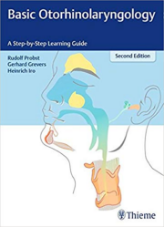Information about your anesthesia
Before the Operation:
You are scheduled for an operation in the near future by the otorhinolaryngology service of the Starnberg Hospital. We would like to provide you with some details about your anesthesia.
Contacting Your Anesthesiologist:
Your surgeon will inform you which anesthesiologist will be responsible for your case, before, during and after your operation. If you have any special questions prior to meeting your anesthesiologist, you are welcome to call our practice at 08151 – 3013.
On the day before the operation, you will meet your anesthesiologist and have adequate time to have all your questions answered in an individualized, professional manner.
Pre-operative Evaluation:
Depending on your age and the nature of your operation, the following tests should be completed before the operation. Please have your primary care doctor (Hausarzt) order the tests and bring the results with you.
- EKG
- Routine laboratory tests
- Chest X-ray
Your anesthesiologist may order additional tests depending one your health status. Ultrasonography of the heart or of the carotid arteries may be needed. If you have older records of other special tests, such as cardiac catheterization results, please bring them with you.
During the Operation:
All of our operations on the nose and sinuses are performed without exception under general anesthesia.
With general anesthesia, it is possible for the anesthesiologist to manage your status in an individualized fashion during the entire operation. For example, the level of anesthesia is usually designed to eliminate not only any perception of pain but also the non-painful sensations which can bother you during an operation or afterwards. Your anesthesiologist insures the optimal depth of anesthesia by monitoring parameters such as blood pressure, EKG and breathing during the entire procedure.
After the Operation:
Recovery room:
After the operation and anesthesia, you will first be followed in the recovery room. A nurse is always present to monitor your body functions and promptly treat problems such as post-operative pain. As soon as you are completely alert and have no other problems, you will be brought back to your room on the ward.
Intensive care ward:
Patients with an increased post-anesthetic risk (such as those with sleep apnea or cardiac risk factors) routinely spend the first night in the intensive care station where they can be monitored more closely.
This measure is designed to reduce your risks and increase your safety.












